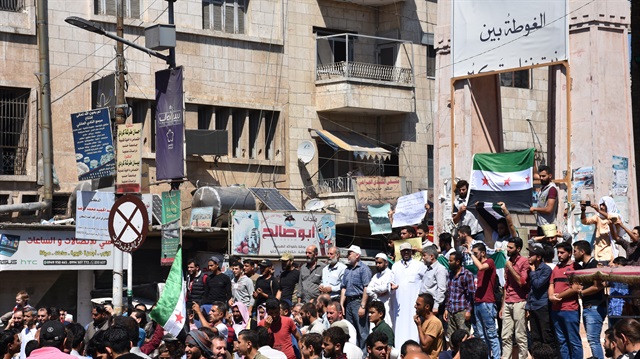
France calls on to Russia, Turkey to preserve de-escalation of violence, help protect civilian populations
France on Monday expressed "its concern about a possible major offensive by the Syrian regime and its allies" against the Syrian province of Idlib.
"Such an offensive would have disastrous consequences. It would engender a new major humanitarian and migratory catastrophe since it could directly threaten the 3 million civilians counted by the United Nations Office for the Coordination of Humanitarian Affairs in the region," the French foreign ministry said in a statement, calling on Russia and Turkey to help protect civilian populations.
Located near the Turkish border, Idlib has been designated as a de-escalation zone where acts of aggression are expressly forbidden as part of the ongoing Astana process.
Nevertheless, for the past two months, the area has been the target of particular fierce airstrikes by Russia and the Assad regime forces.
French Foreign Minister Jean-Yves Le Drian earlier said "the risk of a chemical attack by the Syrian regime in Idlib cannot be ruled out."
He stressed that Paris is currently “looking for a solution [to the Syrian crisis] with Russia and Turkey."
The foreign ministry also cited President Emmanuel Macron's statement on Aug. 27 that his country "will continue to uphold its red lines on the use of chemical weapons and will be ready to act if the use of lethal weapons is proven".
"In any case, France will continue to mobilize with its partners to fight against the impunity for the use of chemical weapons and war crimes or crimes against humanity committed in Syria," read the statement.
"France therefore calls on Russia and Turkey to preserve the de-escalation of the violence they have guaranteed in this region, with the primary concern to protect civilian populations."
The ministry said France will "continue the close dialogue" with Russia and Turkey "as well as with the other main actors in the Syrian crisis, in order to bring about an inclusive, credible and sustainable political solution in Syria."







